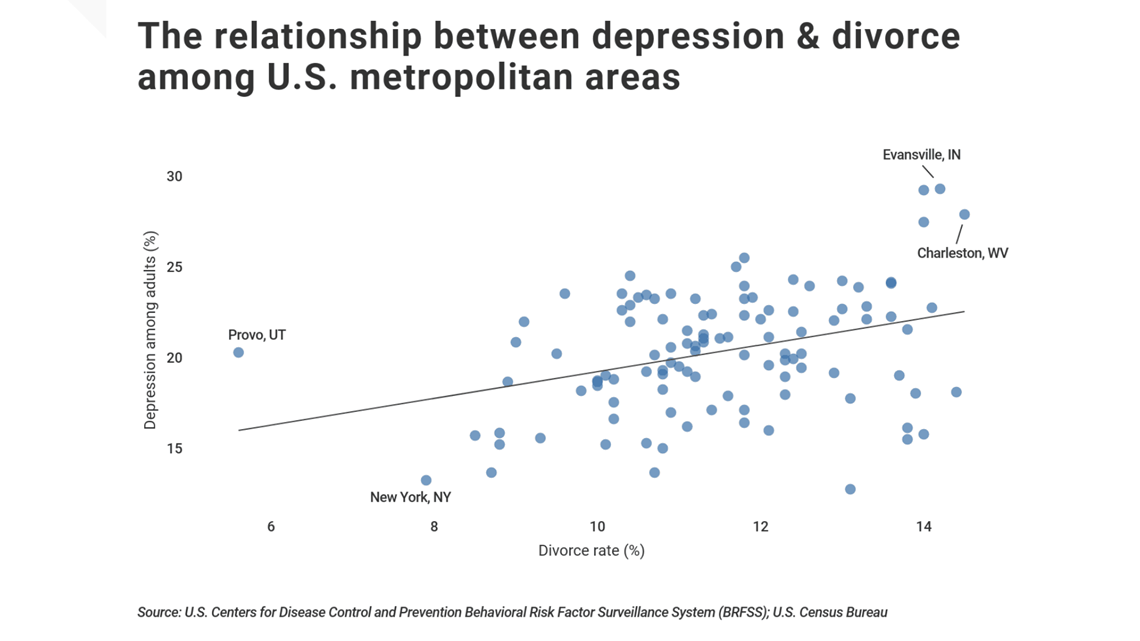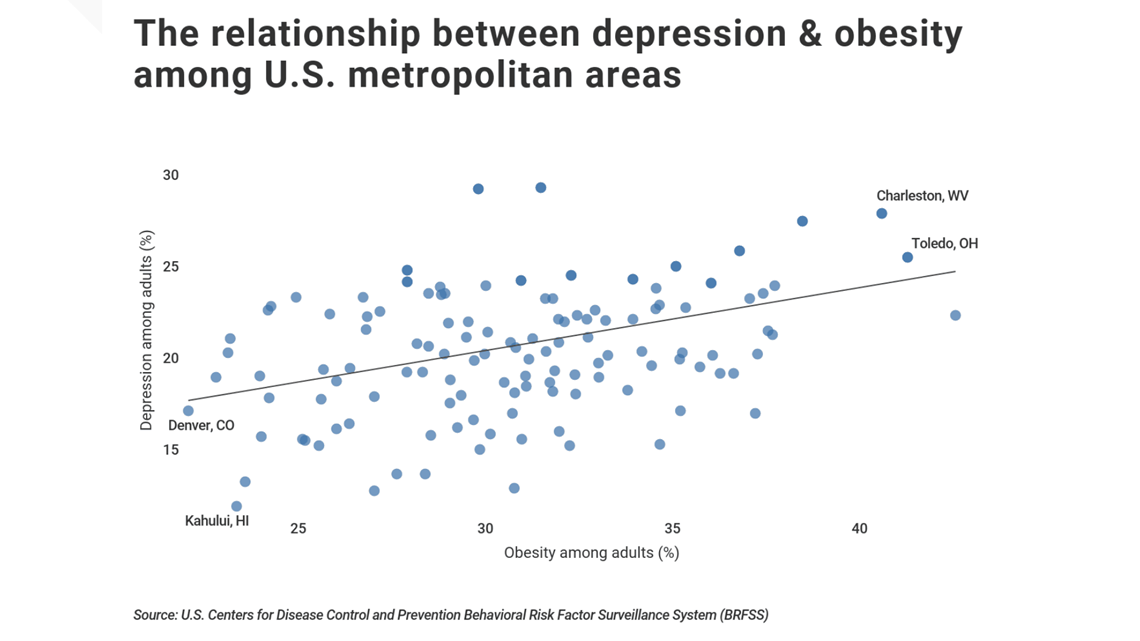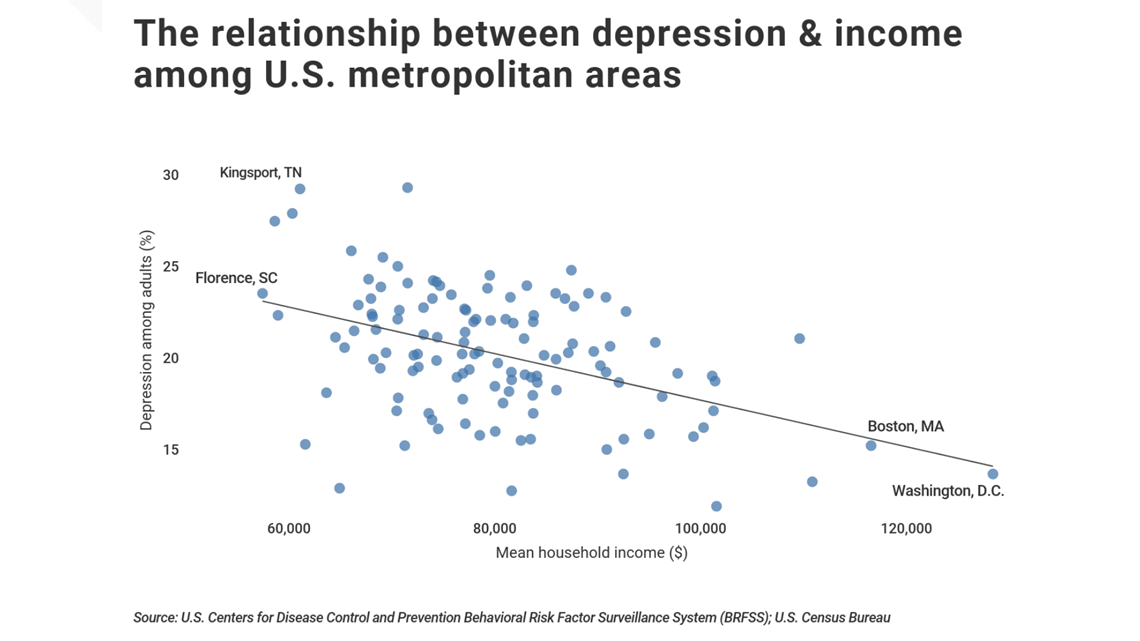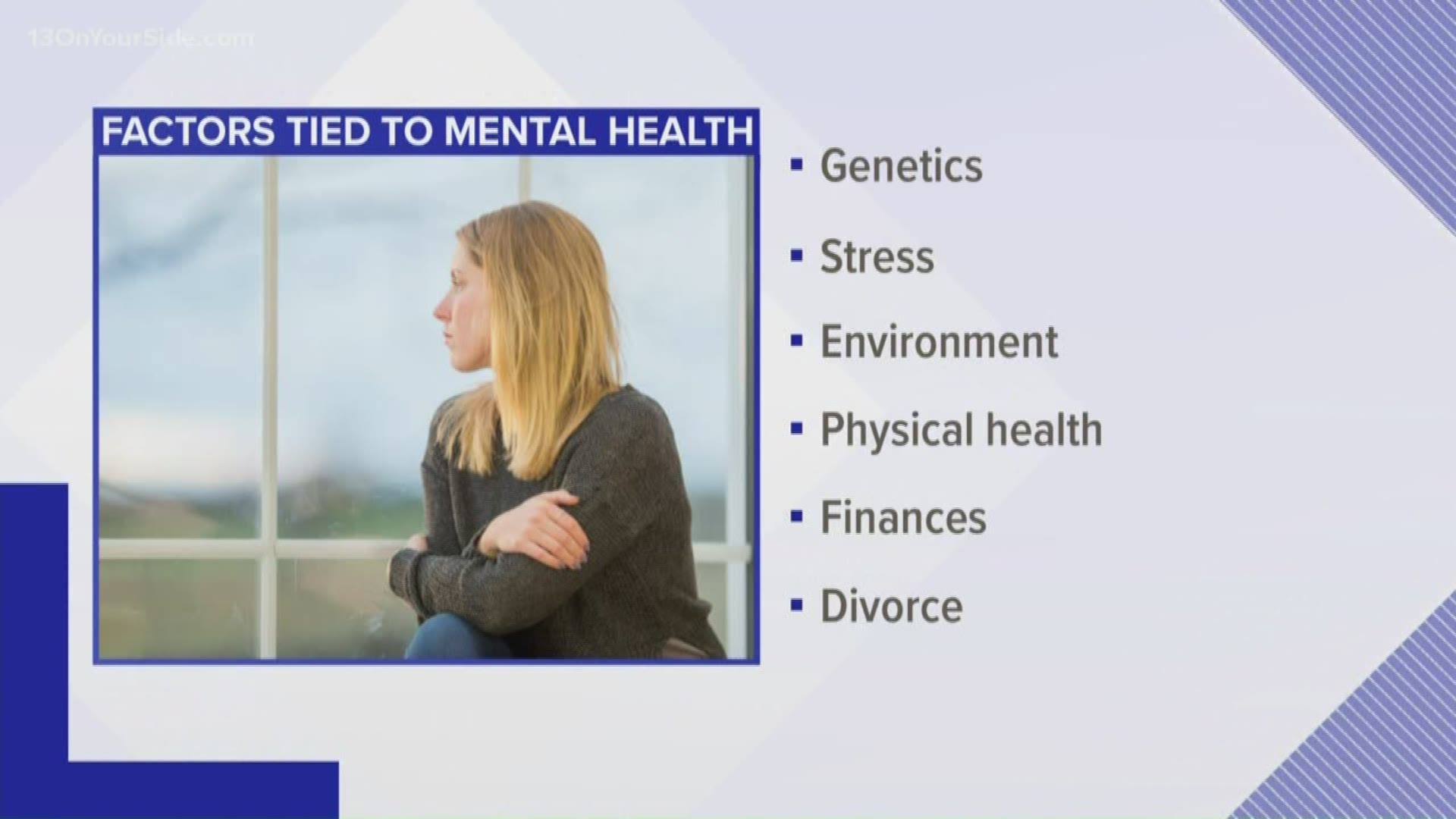GRAND RAPIDS, Mich. — The number of Americans diagnosed has been on the rise over the past few years and that's especially true in Grand Rapids, according to a recent study.
There has been an increase of almost 18% of Americans diagnosed with depression between 2016 and 2017, and a study conducted by Insurance Providers shows Grand Rapids has the highest rate of depression among "large U.S. metro cities," with 25% of residents diagnosed.
The study indicates there are a number of factors that can impact mental health including genetics, stress, environment, physical health, finances and divorce.
CDC and Census data from the study show higher divorce rates generally correspond to higher rates of depression. However, whether people suffering from depression are at higher risks of divorce or whether divorce itself increases the risk of depression is still being debated.


Also, unchecked mental illness can directly impact physical health. Researchers found mental health diagnoses were linked to higher rates of infectious disease, respiratory disease and weight gain. The study indicated a positive correlation between depression and obesity.


Lastly, researchers found reinforcement in the relationship between financial health and mental health. Lack of funds for rent, healthcare and food all increase stress and can trigger mental health issues. Depression can hinder job performance or make for a difficult time finding employment at all.


Behind Grand Rapids, Cincinnati ranked second for its share of adults diagnosed with depression with 24.5%. Other top cities were Birmingham, Ala., Rochester, N.Y. and Salt Lake City.
Cities that ranked the lowest for depression were Miami, New York City and Washington D.C.
Here is a breakdown of the percentage of people in Grand Rapids diagnosed with depression and the correlation to factors like divorce, poverty level and obesity:
- Share of adults ever diagnosed with depression: 25.0%
- Share of adults who are obese (BMI 30.0 – 99.8): 32.3%
- Share of total population with a disability: 11.1%
- Share of total population who are divorced: 10.4%
- Mean household income: $79,512
- Share of total population below poverty level: 10.0%
For more information about depression and resources:
If you or someone you know is depressed and thinking of hurting themselves or committing suicide, seek immediate health. These are resources that can help:
- Call 1−800−273−TALK (8255) to reach a 24−hour crisis center or dial 911. 1−800−273−TALK is the National Suicide Prevention Lifelineexternal icon, which provides free‚ confidential help to people in crisis. The Substance Abuse and Mental Health Services Administrationexternal icon runs this lifeline.
- Call your mental health provider.
- Get help from your primary doctor or other health care provider.
- Reach out to a close friend or loved one.
- Contact a minister, spiritual leader, or someone else in your faith community.
RELATED VIDEO:
More on 13 ON YOUR SIDE:
►Make it easy to keep up to date with more stories like this. Download the 13 ON YOUR SIDE app now.
Have a news tip? Email news@13onyourside.com, visit our Facebook page or Twitter. Subscribe to our YouTube channel.


